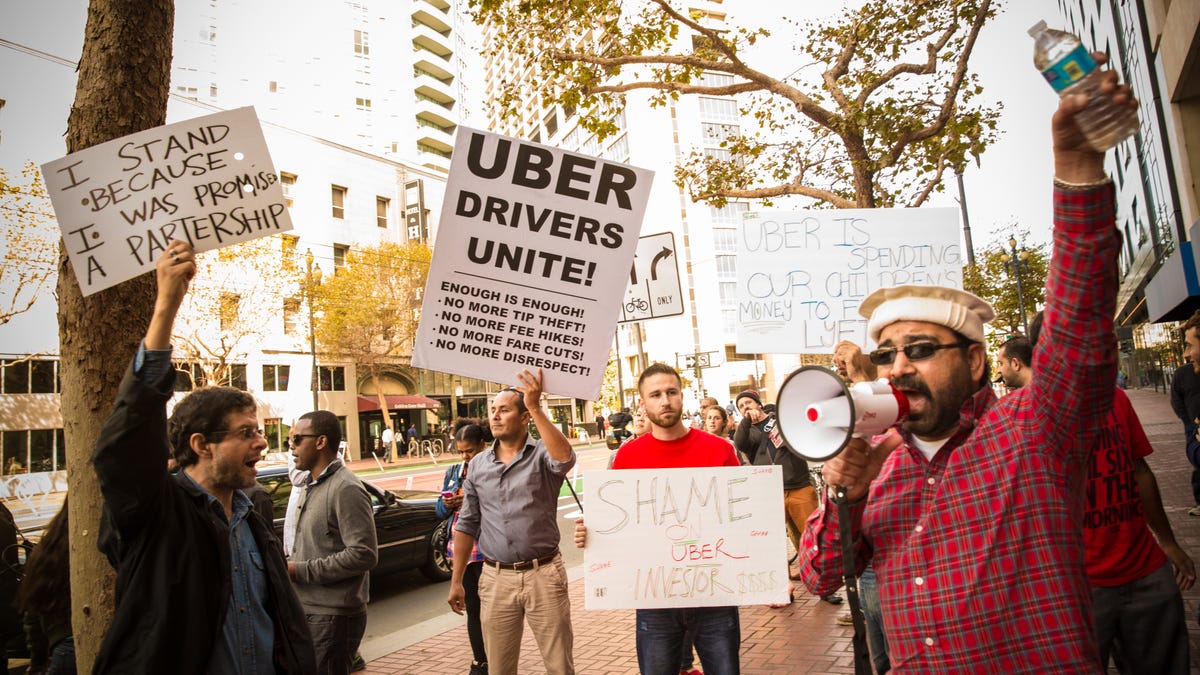San Francisco demands driver wage data from Uber, Lyft
The startups' hometown steps up the fight over worker classification.

Uber drivers have had several disagreements with the ride-hailing company.
San Francisco wants to know what Uber and Lyft are paying their drivers in a move that could lead to drivers being classified as employees rather than independent contractors.
San Francisco City Attorney Dennis Herrera issued subpoenas Tuesday for records from the hometown ride-hailing startups on how they classify their employees, as well as records on driver pay and benefits. The move comes a month after the California Supreme Court issued a ruling that makes it harder for employers to classify their workers as independent contractors.
"San Francisco's laws help ensure that employers provide a fair day's wage for a fair day's work," Herrera said in a statement, adding that laws also guarantee employee benefits like sick leave, health care and paid parental leave. "We are not going to turn a blind eye if companies in San Francisco deny workers their pay and benefits."
The city's subpoenas seek a complete list of drivers who worked in San Francisco since 2015, as well as documentation on their hours, wages, health care payments and other benefits they received. They also seek documentation showing how the companies classify the employment status of those drivers.
Ride-hailing companies have resisted efforts to classify their drivers as employees because it could make doing business more expensive for the companies. Critics charge that Uber and Lyft reap a financial windfall by treating its drivers as contractors and thus avoiding higher costs such as paying benefits, overtime and insurance.
A ruling in April by the California Supreme Court poses a significant threat to the foundation of the companies' business model. The court unanimously ruled that to classify someone as an independent contractor, businesses must demonstrate that the worker is free from the control and direction of the employer; performs work that is outside the hirer's usual course of business; and customarily engages in "an independently established trade, occupation or business."
Uber declined to comment, while Lyft didn't immediately respond to a request for comment.
Security: Stay up-to-date on the latest in breaches, hacks, fixes and all those cybersecurity issues that keep you up at night.
Blockchain Decoded: CNET looks at the tech powering bitcoin -- and soon, too, a myriad services that will change your life.

